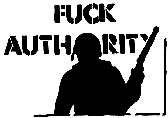It is looking increasingly likely that I'll be doing my PhD in Philosophy next year at the University of Johannesburg. Just waiting on finalisation of application and awarding of a bursary, both of which seem probable. Going to be starting on the research proposal this month, below is a short, bastardised proposal. Wish me luck.
Draft Title: Towards a Neo-Aristotelian, Stateless Economy
Author: Tristen Taylor
Date: 11th of November 2007
--Henri de Saint-Simon, The Reorganization of the European Community
In my Masters thesis[ii], one of Henri de Saint-Simon’s old principles was considered in some depth; the State itself. The argument was made that the philosophical backing for and the subsequent implementation of the State began with Plato and his Republic. Two thousand and three hundred years ago humanity was faced with a choice between Plato's Republic and Aristotle's polis. We chose Plato, and we were wrong on perfectionist grounds. Should have gone for the polis.
The justification of the State as a form of social organisation that essentially has A) a defined territory, B) a population, C) a government that is engaged in the organised use of force, D) a hierarchical structure was analysed through the lens of consequentialist, Neo-Aristotelian ethics. In particular, through the following key aspects of Aristotle’s ethics:
1) Political life is part of the good life. Eudemonia is comprised, in part, of certain political activity.
2) Even the contemplative life requires a person who is engaged in it to play an active and meaningful role in the political activities of the polis.
3) Even if the contemplative life is to be preferred to the political life, this does not absolve a scholar from playing an active and meaningful role in the political sphere. It is that person's function as a citizen.
4) However, being involved in the political life is not enough for an individual; he must also act in a virtuous manner (which he gains through education and habituation) and his use of rational ability.
5) The citizen needs to live in accordance with a strong and deep sense of friendship, and have material goods such as health and leisure.
Not only was the State unjustified according to this reading of Aristotle’s ethics, my thesis also concluded that the polis was not a State and that the best society to live in a revised form of the polis. This revised form of the polis (the modern polis) has the following elements:
1) Citizens have sufficient time to engage in contemplative pursuits and meaningful political action.
2) That citizens and the modern polis have a fair degree of self-reliance and good health.
3) The modern polis is engaged in the education and habituation of moral virtue.
4) Citizens do not only have the opportunity and ability to play a part in the political life of the modern polis, but also can do so in a significant manner in line with a very strong kind of participatory democracy (similar to that of the Athenian democracy) and are expected to do so.
5) There is a spirit of community and philia within the modern polis.
However, a big question was left unanswered in my Masters thesis, namely what sort of economy would a modern polis have? Given the physical scale of a modern polis and requirements of obtaining eudemonia, what sort of economy is both possible and best suited? Would free market fundamentalism be the best system as Murray Rothbard has advocated for? On the other end of the scale, what about Michael Albert's participatory economics?
In addition, the economic philosophies of several key perfectionists also need to be examined. These include Karl Marx, L.T. Hobhouse, and R.H. Tawney. To the best of my knowledge, none of these have been seriously examined in light of the modern polis (especially viability and their ability to promote eudemonia).
If none of these ethical/economic theories work for the modern polis, a new type economy (perhaps incorporating elements of the above) will have to be found.
This is an important undertaking. Our current system is unsustainable. Modern capitalism is drawing close to ecological limits (climate change and resource scarcity) and will soon become untenable. We are at a vital juncture in human history and new style of social organization (which includes economics) has to be found. Philosophy has an obligation to seek this solution.
Some key readings:
Albert, Michael. Parecon: Life After Capitalism (London: Verso Books, 2003).
Aristotle. The Nicomachean Ethics. Translated by W.D. Ross (Oxford: Oxford University Press, 1998).
Aristotle. The Politics. Translated by A. Dreizehnter (Cambridge: Cambridge University Press, 1988).
Hobhouse, L.T. Liberalism (Oxford: Oxford University Press, 1911).
Hobhouse, L.T. The Elements of Social Justice (London: George Allen & Unwin, 1922).
Marx, Karl. Capital. Translated by Eden Paul (London: J.M. Dent & Sons Ltd., 1933)
Marx, Karl. Manifesto of the Communist Party. 1847.
Tawney, R.H. Equality (London: Heinemann, 1964).
[i] Henri de Saint-Simon. 1814. The Reorganization of the European Community. In: Carl Cohen, Communism, Fascism & Democracy (New York: Random House, 1964), pg. 25
[ii] Tristen Taylor. Justification of the State and Anarchist Alternatives (University of the Witwatersrand, 2007)
Labels: Philosophy




0 Comments:
Post a Comment
Subscribe to Post Comments [Atom]
<< Home